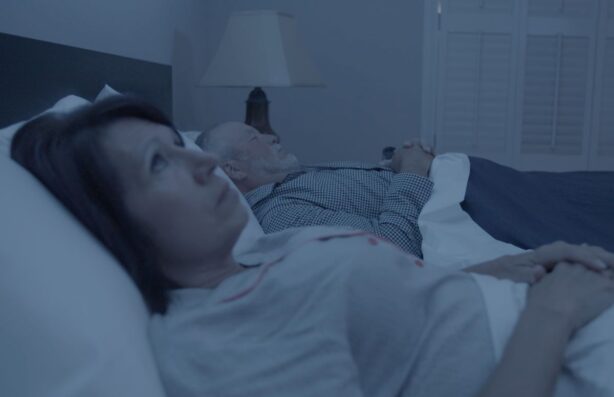Adequate sleep is crucial towards maintaining good health.
It’s essential for optimal brain function, regulating emotion, maintaining a healthy body weight, and reducing the risk of diseases like diabetes, heart illness, high blood pressure, and stroke.
But,while it’s understood that sufficient sleep is essential to a person’s physical, mental, and overall well-being, the Public Health Agency of Canada reports that nearly 30 percent of adult Canadians do not get enough sleep every night.

Multiple factors contribute to this alarming figure, and there’s a chance that a lack of factual information about sleep is one of them.
Sadly, misinformation about sleep is more prevalent now than ever before, because of how quickly falsehoods can spread online, especially on social media platforms.
That makes it all the more important to be able to differentiate between sleep myths and facts. Otherwise, you may develop an unhealthy relationship with sleep and put your health at risk.
To set the record straight, here are four of the most common myths about getting a good night’s sleep, and the truths behind them.
Myth 1: A Warm Environment Is Ideal for Good Sleep
Do you feel especially relaxed when bathing in a hot tub? That’s because warm temperatures promote better blood circulation and muscle relaxation.
Perhaps this is the root of one of the most prevailing misconceptions about sleep, i.e. that a warm environment is ideal for quality sleep.
In reality, however, you need to be in a cool environment, with a room temperature of around 18.3o Celsius (or 65o Fahrenheit), to achieve long and satisfying sleep.
Your body’s core temperature naturally cools down at bedtime to help you fall asleep and stay asleep.
Because of this, you actually need a cool environment, plus comfy and breathable women sleepwear, to support and maintain this drop in body temperature.
If your bedroom is warm, or if you have thick layers of clothes or blankets on as you try to sleep, the heat can disrupt the natural lowering of your body temperature.
This, in turn, can make falling and staying asleep more challenging.
Myth 2: Bedtime Is Inconsequential as Long as You Get Enough Sleep
The length of the time you spend asleep matters, but it’s not the be-all and end-all to staying healthy. Your actual bedtime is also of utmost importance.
Pulling an all-nighter and sleeping during the day can trigger bodily changes that can lead to severe medical conditions.
One study published in the Proceedings of the National Academy of Sciences revealed that staying awake at night and sleeping during the daytime—even for a mere 24-hour period—can quickly result in biochemical changes in the blood that can increase the risk of diabetes, obesity, cancer, and many other health issues.
Multiple studies on night shift workers also provided evidence that sleep timing is linked to overall health.
Aside from experiencing poor sleep quality and shorter sleep duration, those who work at night and sleep during the day have a higher risk of suffering from unfavourable long-term health consequences like depression.
If you possibly can, stick to a healthy sleep schedule that involves being awake during the day and being asleep at night.

Myth 3: Many Adults Need 5 or Fewer Hours of Sleep to Stay Healthy
Whether you’re 18 years old or 60 years old, you need at least 7 hours of sleep every night for optimal health. Anything less than that can lead to harmful health problems.
A review of scientific evidence focusing on the relationship between sleep duration and health, published in SLEEP and the Journal of Clinical Sleep Medicine, showed that ongoing lack of sleep is associated with numerous poor health outcomes, including the following:
- Weight gain and obesity
- Diabetes
- Hypertension
- Heart disease and stroke
- Depression
- Impaired immune system
- Increased risk of accidents and death
The best way to avoid potential health concerns is to find ways to increase deep sleep to ensure you’re reaching that minimum of 7 hours of sleep per night.
Myth 4: Taking a Nap During the Afternoon Can Make Up for Nocturnal Sleep
While a quick afternoon nap can boost alertness, mood, and energy, it can never replace quality nighttime sleep.
A recent study from Michigan State University’s Sleep and Learning Lab found that short naps of 30 or 60 minutes each didn’t provide measurable benefits towards alleviating sleep deprivation.
Frequent midday napping also has its drawbacks. Aside from interfering with nocturnal sleep and making it more difficult for people with insomnia to sleep at night, the habit of taking frequent naps can cause health issues.
A recent peer-reviewed study published in the journal Hypertension revealed individuals who take regular daytime naps are more likely to develop high blood pressure and experience a stroke compared to those who never take naps.
It’s worth pointing out that while a nap isn’t harmful per se, many people that take frequent naps probably lack quality and sufficient sleep at night.
As with the other myths listed above, the ultimate truth is that a poor night’s sleep is the biggest contributor to poor health.

While this list is not exhaustive, it’s a good start in learning about the value of a good night’s sleep, as well as the value of verifying the sleep-related information you read online.
Take time to learn the truth and the myths about sleep and its importance, to help ensure that you develop positive sleep habits that will benefits your physical, mental, and emotional health!
